Is This the Europe We Wanted?
Adelina Marini, August 25, 2015
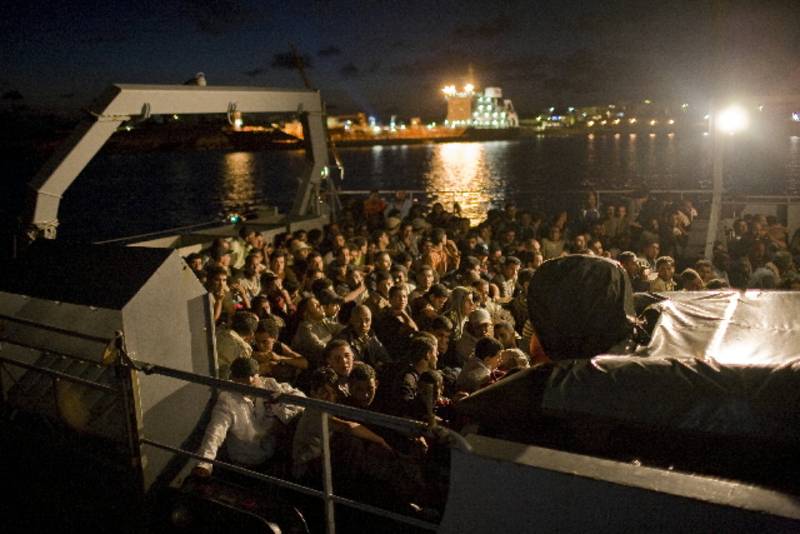 The romance of a unified Europe is long gone, but today more than ever you can feel its absence in a painful, even scary way. More and more frequently you see headlines like “Did Europe die?”, “Has the end of Europe come?”, and other similar ones that don’t even end with a question mark. The reasons for such headlines are various – from the Greek to the refugee crises. From a model of integration Europe has turned into one big paradox. In some fields it keeps on integrating – mainly in the economic and financial spheres, while in others it keeps on disintegrating. Issues become more communal, but solutions are more intergovernmental. Disagreements on common problems are so many that one is left with the impression there is no common message. This is the big accusation towards Europe – you have no unified position, you are not united.
The romance of a unified Europe is long gone, but today more than ever you can feel its absence in a painful, even scary way. More and more frequently you see headlines like “Did Europe die?”, “Has the end of Europe come?”, and other similar ones that don’t even end with a question mark. The reasons for such headlines are various – from the Greek to the refugee crises. From a model of integration Europe has turned into one big paradox. In some fields it keeps on integrating – mainly in the economic and financial spheres, while in others it keeps on disintegrating. Issues become more communal, but solutions are more intergovernmental. Disagreements on common problems are so many that one is left with the impression there is no common message. This is the big accusation towards Europe – you have no unified position, you are not united.
The fall of the Berlin wall
This is perhaps the most romantic period in European history, when the foundation was laid for overcoming a historic injustice. At that time there was complete consensus that unification is the only correct decision. Criteria were re-negotiated and a process of relatively rapid expansion began. In 2004 Europe went through its largest merger when ten new states joined the EU, eight of which from the former influence sphere of the USSR. Two more joined in 2007, and the last expansion (so far) happened in 2013. However, it was at the very start of this process that the cool-down of emotions began. As soon as the first ten were to join older member states introduced restrictions. The myth of the Polish plumber was created, a symbol of the large Eastern threat.
Many of the older member states kept their labour markets closed and were suspicious of citizens from the new ones, eager to taste the fruit forbidden to them during the totalitarian slavery. The further the Union widened, the more suspicion between member countries grew. Love at first sight was gone and now old and new Europe saw each other’s true face. The old was scared by globalisation, the comfort created during the Cold war, the influx of poor newly-Europeanised citizens looking for jobs and bringing along a different mentality and understanding of the world. It was scared for its standard of living, its jobs, and its cultural survival. And the new one was frustrated by having the fruit not forbidden on paper but is rationed in portions, based on unclear rules, which reminded them that the wall, though physically gone, is still standing.
Unification happens in stages. Three of the newest members are kept out of the Schengen security area. Bulgaria and Romania for failing to enforce rule of law and successfully fight corruption, and Croatia because the legal deadline for it has not yet expired. The most frustrating moment of Europe’s expansion remains access to labour markets. Hysterics in Great Britain on the fall of barriers to Bulgarian and Romanian workers still leaves a bad aftertaste and reminds that some are more European than others in a united Europe. Somehow unnoticed, from the emotionally loaded term “united Europe”, the restitution of historic justice took on the technical term “enlargement”.
And although round anniversaries of the fall of the Berlin wall still gather thousands of people, mainly in Berlin, reality is that there are few who perceive this day as their own and Europe-wide celebration, one that is not properly noted in all member states. What is more, the fall of the Wall is basically a cause for two celebrations – one being the historic unification that should have ended WWII for good, and the second – breaking off from totalitarian regimes. For the second one the European Parliament set aside a special date in 2008 – August 23. The problem is that even for this holiday celebrations are not general and uniform. Many Europeans probably don’t even know that such a day exists and is very important.
 The day was noted with an extremely brief statement from the First Vice-President of the European Commission Frans Timmermans (Netherlands, Socialists and Democrats), in which he states it is important to remember this day and pay respect to the ones, who fell victim of totalitarian and authoritarian regimes in 20th century Europe. “We must preserve their memory and use this day to reflect upon the lessons of these dark chapters in the political history of our continent.” Such words sounded beautiful and inspiring once but not today, when in many of the newer member states authoritarianism is coming back and there are no grounds for celebrations, concerts, and public tribunes. The new process even has a modern name, thought-up in the former Yugoslavia region – democraturas.
The day was noted with an extremely brief statement from the First Vice-President of the European Commission Frans Timmermans (Netherlands, Socialists and Democrats), in which he states it is important to remember this day and pay respect to the ones, who fell victim of totalitarian and authoritarian regimes in 20th century Europe. “We must preserve their memory and use this day to reflect upon the lessons of these dark chapters in the political history of our continent.” Such words sounded beautiful and inspiring once but not today, when in many of the newer member states authoritarianism is coming back and there are no grounds for celebrations, concerts, and public tribunes. The new process even has a modern name, thought-up in the former Yugoslavia region – democraturas.
The Hungarian wall
Besides the subject of the return of totalitarian regimes, Europe is somehow unpleasantly silent on the building of new walls. Hungary, where you can most clearly see a democratura rule, accompanied, in the best authoritarian traditions, by curtailing the freedom of media, independent institutions, and non-governmental organisations, is the state that first and unilaterally decided to start the building of a wall along its border with Serbia in order to protect itself from the flow of people running from war and conflict in the periphery of the EU. After last year Viktor Orbán shocked Europe with his speech, in which he announced the severance with liberal democracy, which is a foundation of the EU, this year he jumped in to defend his wall again using words that are in open conflict with European values. “Here must note that the upsurge of migration is also related to the fact that some people see the West’s human rights fundamentalism as an invitation, regardless of the reasons they have for wanting to leave their countries. Because naturally there are genuine refugees, but there are many more who are merely seeking to enjoy the benefits of the European lifestyle,” he said in his traditional July speech. Or are they really in conflict with European values if we look at some statements in old Europe? Or are these values just for show, but when push comes to shove we are quick to hold our hands up?
Bulgaria has so far not been heavily criticised neither on its mild authoritarianism, nor for also building a wall on the border with Turkey. Older member states continue to look down and threaten with leaving it out of Schengen. It was even German Minister of the Interior Thomas de Maizière that joined the chorus of calls. Some states are cynical on the subject of the refugee crisis, like Slovakia, where a spokesman of the Ministry of Interior announced that Slovakia would accept Christians only because Muslims would not feel at home, for there were no mosques in Slovakia. Other countries are already desperate, like Italy, Greece, and Germany. The first two because they are at the front line and are battling this problem for years now, seeing not a lot of understanding in their partners in the EU, and Germany because it is a main destination for refugees.
There are third countries like Croatia that are an illustration of a successful marriage – together in good times and in bad. On Sunday Croatian Prime Minister Zoran Milanović stated that Croatia was a country that had received aid when times were hardest, so, within its capability, is ready to help the refugees. “We have to be human, Christian, Muslim if you wish, to have a heart, to give out, not to be petty. This is not about sacks of cabbage. These are people! People, who are desperate, who are running from difficult situations and you cannot waylay them with truncheons. Croatia cannot have a refugee strategy, because Europe doesn’t have one either”, he told journalists.
It is more and more often that instead of solving our problems together, like we did in the beginning, we rather fall to politics of guilt. You will often hear in newer member states that larger states are to blame for the current refugee situation, that they have unleashed it by their actions or inactions. The intervention of USA and the Coalition of the Willing in Iraq, the role of the EU, or rather some member states in Northern Africa, the inconsistent policy on Middle East conflicts, and the situation in Turkey are the main reason for the current situation is the message you can hear from both media and ruling politicians in the former socialist camp states. They speak as if this had never concerned them and as if they have forgotten how they dreamt of outside interference when they fought for freedom from the Soviet whip and how they despised the West for not interfering.
The challenges that Europe is facing are too large for the fragmented decision-making system, backed by both old and new in the EU. Everyone with their own internal partisan considerations. It is high time we asked ourselves is this is the Europe we wanted? Is this what we suffered scarcity, made sacrifices, and are now laying wreaths at the monuments of those who lost their lives dreaming of a united Europe with no borders for? Europe of freedom, democracy, and rule of law. When were we swearing by the European motto “united in diversity” and when did we find out that diversity does 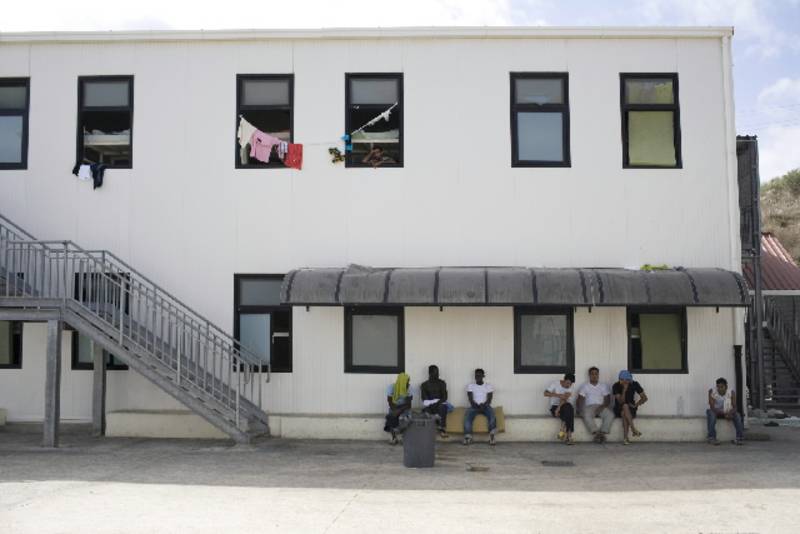 not agree with us? Europe has never so far been as weak, as it is now. And the reason is that over the past year EU indulged in its nationalisms.
not agree with us? Europe has never so far been as weak, as it is now. And the reason is that over the past year EU indulged in its nationalisms.
Over the entrance of the Bulgarian Parliament an ancient wisdom is written: “Unity makes strength” which comes from the legend of Khan Kubrat, who united the Bulgarian tribes and set up the conditions for the establishment of the Bulgarian state in the 7th century AD. According to legend, Khan Kubrat gathered his sons around his deathbed and made them try and break a sheaf of arrows. None of them managed to do it. The khan then started to take out arrows one by one and easily break them. The lesson to his sons was that unity makes strength. While you are together and support each other you will be as this sheaf of arrows, no one could defeat you. Once separated, you become weak and will be easily conquered by any enemy. Know that strength rests in unity, he commanded them.
Translated by Stanimir Stoev
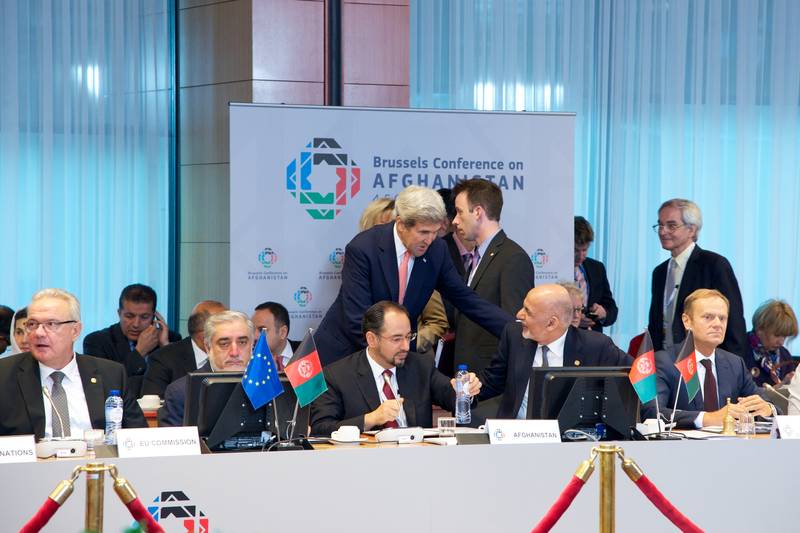 | © Council of the EU
| © Council of the EU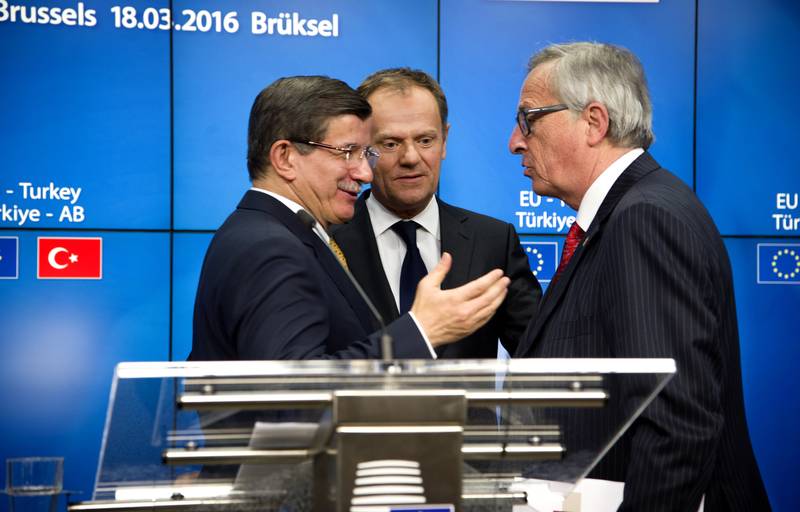 Davutoglu, Tusk, Juncker | © Council of the EU
Davutoglu, Tusk, Juncker | © Council of the EU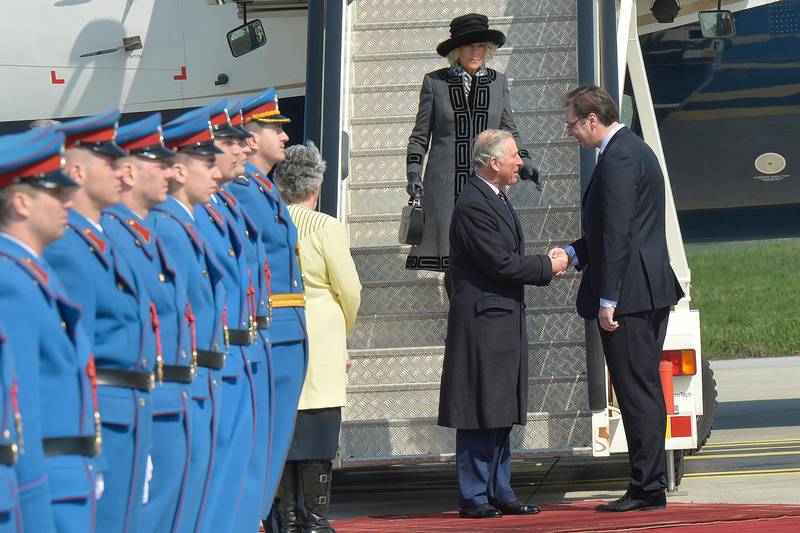 | © Vlada RS
| © Vlada RS